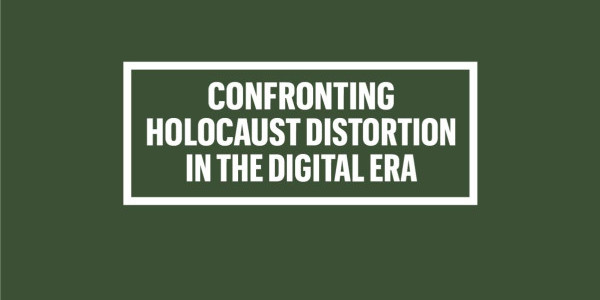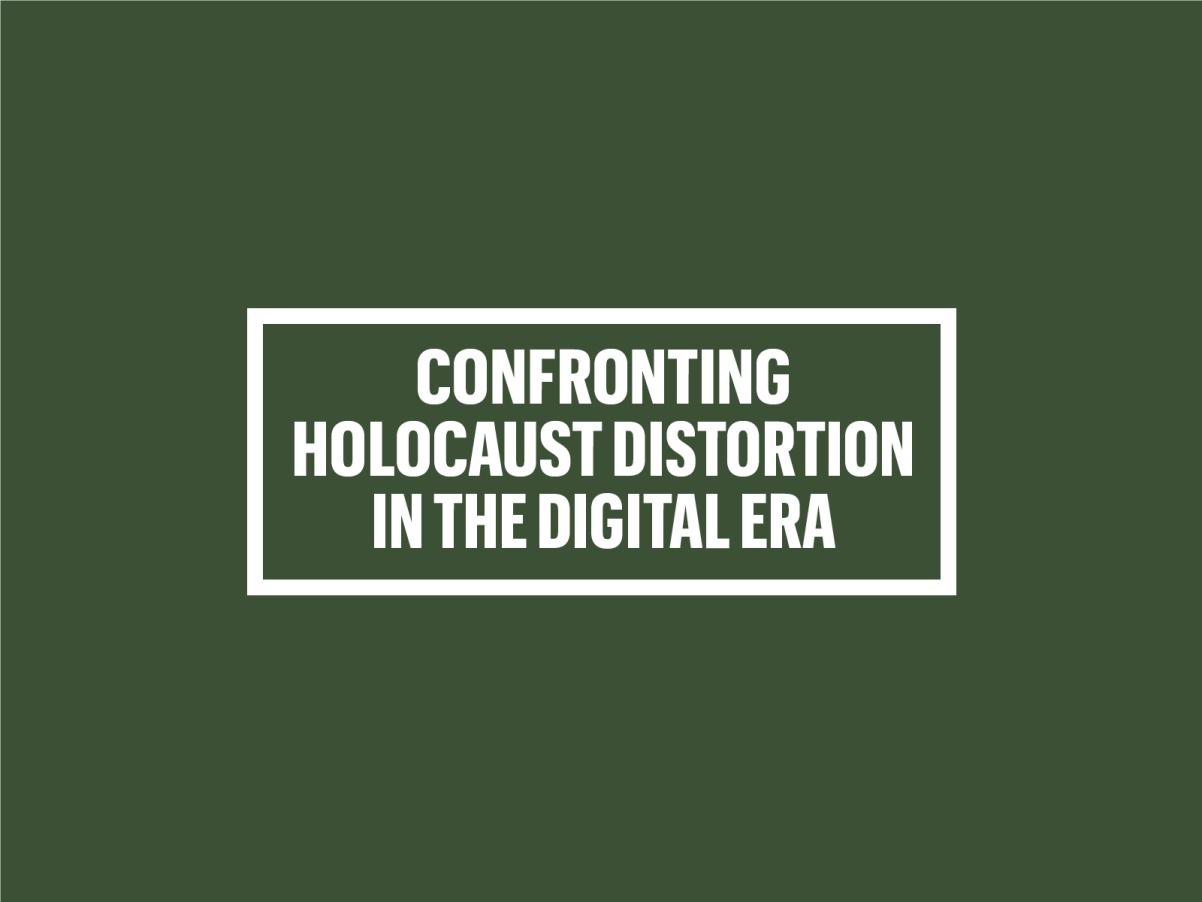Global Education Outreach Program
Call for Papers: Confronting Holocaust Distortion Online
10/08/2025 | Na stronie od 29/05/2025

Źródło: POLIN
Misją programu Global Education Outreach Program (GEOP) jest promowanie studiów nad historią i kulturą Żydów polskich na arenie międzynarodowej poprzez wspieranie badań i wymiany naukowej. Dzięki współpracy z ośrodkami akademickimi i badawczymi w Polsce i na świecie POLIN jest prężnie rozwijającym się centrum debaty naukowej i wiedzy.
W ramach realizowanego już od 10 lat programu GEOP Muzeum POLIN zorganizowało 27 międzynarodowych konferencji naukowych, 57 wykładów otwartych, 26 warsztatów naukowych i 8 edycji seminariów doktorskich. Przyjęliśmy 19 naukowców na pobyty badawcze i dotarliśmy łącznie do ponad 250 000 widzów i uczestników. Zachęcamy do subskrypcjii newslettera GEOP, w którym będziemy informować o najbliższych naborach oraz wydarzeniach naukowych w Muzeum POLIN
Folder Global Education Outreach Program do pobrania [PDF] >>
Program GEOP finansuje międzynarodowe, interdyscyplinarne konferencje naukowe i warsztaty, szkoły letnie, webinary, wykłady otwarte i publikacje. Program jest skierowany do naukowców w różnych stadiach kariery oraz przedstawicieli różnych dziedzin, w tym historii, nauk politycznych, literatury, historii sztuki, muzykologii, teatrologii, filozofii, religii, socjologii, antropologii i prawa.
Kontakt: GEOP@polin.pl
Call for Papers: Confronting Holocaust Distortion Online

Join us at POLIN Museum this November for an international conference addressing one of the most urgent challenges of our time: Holocaust distortion in the digital age. Submit your proposal by August 10, 2025.
Social media, artificial intelligence, and digital communication have transformed the way we access history — but also how it’s distorted. As misinformation spreads faster than ever, institutions committed to preserving Holocaust memory face a critical task.
From 18 to 20 November 2025, POLIN Museum will host the international conference Confronting Holocaust Distortion in the Digital Era. Scholars, museum professionals, and educators will come together to explore how we can respond to Holocaust distortion online — with evidence-based narratives, educational tools, and collaborative strategies.
We welcome paper proposals on themes such as:
- the role of AI and social media in spreading Holocaust distortion,
- effective counter-narratives and digital resources,
- collaboration between scholars, museums, and tech developers,
- engaging younger generations through innovative education,
- and bridging the gap between academic knowledge and public memory.
---
- Submission deadline: August 10, 2025
- Submit your abstract (max. 500 words) via our online form
- Questions? Contact us at: geop@polin.pl
This conference is part of POLIN Museum’s Global Education Outreach Program (GEOP), supported by Taube Philanthropies, William K. Bowes, Jr. Foundation, Libitzky Family Foundation, and the Association of the Jewish Historical Institute of Poland.
Learn more ➜:
This international conference will convene leading experts and emerging scholars to forge concrete action plans for academic and cultural institutions to effectively confront Holocaust distortion in the digital sphere, addressing the growing divergence between scholarly understanding, public memory, and the manipulation of history.
- 18–20 November, 2025, POLIN Museum
- Application deadline: August 10, 2025, fill out the form →
- More information: geop@polin.pl
The proliferation of digital tools, particularly social media and artificial intelligence, presents an unprecedented challenge in the ongoing effort to preserve the historical accuracy of the Holocaust. In an era where misinformation spreads rapidly online and the distinction between truth and falsehood is increasingly blurred, scholars and museum professionals must proactively develop and disseminate compelling, evidence-based narratives about the Shoah. Recognizing that distortion, while distinct from outright denial, manifests in subtle and fluid forms – as evidenced by recent research highlighting significant gaps in Holocaust knowledge – this conference seeks to bridge the widening divide between scholarly understanding and public memory.
We strongly encourage scholars, researchers, and museum practitioners from all relevant disciplines to contribute their expertise to this vital discussion. We invite submissions that address, but are not limited to, the following themes:
- The impact of social media platforms on the spread of Holocaust distortion.
- The role of artificial intelligence in the creation and dissemination of misinformation about the Shoah.
- Innovative strategies for museums and educational institutions to counter online distortion.
- The development of effective digital resources and educational materials to promote accurate Holocaust understanding.
- Collaborative projects between scholars, museums, and technology developers in the fight against distortion.
- Addressing the gap between scholarly discourse and public perception of Holocaust history.
- The intersection of historical politics and the distortion of the Holocaust narrative.
- Case studies of successful initiatives in combating online misinformation related to the Shoah.
- The role of museums and other institutions to counter Holocaust distortion.
- Strategies for engaging younger generations with accurate Holocaust history in the digital age.
Submission Guidelines:
- Submit an abstract of paper (no more than 500 words)
- Include with your submission: Author(s), affiliation(s), email address, and abstract title
- Submission Format: through our online form
- Abstract Submission Deadline: August 10, 2025
- Notification of Acceptance: Mid-September
Contact Information:
Questions can be addressed to geop@polin.pl
The organizers will provide meals and accommodation during the conference and partially reimburse international speakers for travel expenses to and from Warsaw (economy class tickets) as follows:
- from Europe up to 200 USD
- from Israel up to 300 USD
- from elsewhere up to 750 USD
- For participants travelling within Poland up to 75 USD.
The organizers reserve the right to record and publish conference proceedings.
Steering committee:
- Jordanna Gessler (Holocaust Museum LA)
- Dr. Agnieszka Haska (Polish Center for Holocaust Research)
- Prof. Andrea Löw (Leibniz Institute of Contemporary History)
- Dr. Zachary Mazur (POLIN Museum)
- Prof. Antony Polonsky (Brandeis University)
- Hannah Randall (Holocaust Centre North, University of Huddersfield)
- Dr. Robert Rozett (Yad Vashem)
- Dr. Michał Trębacz (Jewish Historical Institute)
The conference is organized within the Global Education Outreach Program.
The conference is made possible with support from Taube Philanthropies, William K. Bowes, Jr. Foundation, Libitzky Family Foundation and the Association of the Jewish Historical Institute of Poland.
The Conference is made possible thanks to the support of the European Association for Jewish Studies.